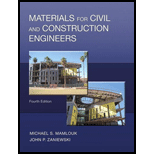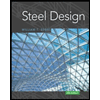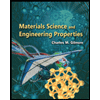
Pearson eText for Materials for Civil and Construction Engineers -- Instant Access (Pearson+)
4th Edition
ISBN: 9780137505586
Author: Michael Mamlouk, John Zaniewski
Publisher: PEARSON+
expand_more
expand_more
format_list_bulleted
Concept explainers
Question
Chapter 9, Problem 9.40QP
(a)
To determine
The tensile strength of each specimen
(b)
To determine
The average tensile strength of the conditioned and unconditioned specimen.
(c)
To determine
The tensile strength ratio (TSR).
(d)
To determine
Does the mix pass the super pave criteria for the moisture susceptibility.
Expert Solution & Answer
Want to see the full answer?
Check out a sample textbook solution
Students have asked these similar questions
Using the AASHTO T 283 test, three HMA specimens were freeze–thawconditioned and three were unconditioned. All the specimens had a diameterof 150 mm. Table P9.40 shows the thickness and load at failure of each specimen. Determine:a. The tensile strength of each specimen in MPa.b. The average tensile strength of the conditioned and unconditionedspecimens.c. The tensile strength ratio (TSR).d. Does the mix pass the Superpave criteria for moisture susceptibility?
Using the AASHTO T 283 test, three HMA specimens were freeze-thaw
conditioned and three were unconditioned. All the specimens had a diameter
of 150 mm. Table P9.40 shows the thickness and load at failure of each speci-
men. Determine:
a. The tensile strength of each specimen in MPa.
b. The average tensile strength of the conditioned and unconditioned
specimens.
c. The tensile strength ratio (TSR).
d. Does the mix pass the Superpave criteria for moisture susceptibility?
TABLE P9.40
Unconditioned Specimens
Conditioned Specimens
Thickness, mm
64
63
63
63
64
62
Load at failure, kN
11.5
10.5
10.8
9.0
9.5
9.2
A1
Copy the sketch of the tensile stress-strain test (Figure A1) results for a
waisted metallic specimen and indicate the locations representing maximum
stress (A), ultimate strain to failure (B), and 0.2% proof (yield) stress (C), and
calculate the Young's modulus of the material.
Figure A1
300
250
200
150
100
50
0
Stress (MPa)
0.2
0.4
0.6
8.0
Strain (%)
10.0
Chapter 9 Solutions
Pearson eText for Materials for Civil and Construction Engineers -- Instant Access (Pearson+)
Ch. 9 - Prob. 9.1QPCh. 9 - Prob. 9.2QPCh. 9 - Prob. 9.3QPCh. 9 - Prob. 9.4QPCh. 9 - Prob. 9.5QPCh. 9 - Prob. 9.6QPCh. 9 - Prob. 9.7QPCh. 9 - What are the engineering applications of each of...Ch. 9 - Prob. 9.9QPCh. 9 - Prob. 9.10QP
Ch. 9 - Prob. 9.11QPCh. 9 - Prob. 9.12QPCh. 9 - Prob. 9.13QPCh. 9 - Prob. 9.14QPCh. 9 - Prob. 9.15QPCh. 9 - Prob. 9.16QPCh. 9 - Prob. 9.17QPCh. 9 - Prob. 9.18QPCh. 9 - What are the objectives of the asphalt concrete...Ch. 9 - Prob. 9.20QPCh. 9 - Prob. 9.21QPCh. 9 - Prob. 9.22QPCh. 9 - Prob. 9.23QPCh. 9 - Prob. 9.24QPCh. 9 - Prob. 9.25QPCh. 9 - An asphalt concrete mixture includes 94% aggregate...Ch. 9 - Prob. 9.27QPCh. 9 - Prob. 9.28QPCh. 9 - Prob. 9.29QPCh. 9 - Prob. 9.30QPCh. 9 - Based on the data shown in Table P9.31, select the...Ch. 9 - Based on the data in Table P9.32, determine the...Ch. 9 - Given the data in Table P9.33, select the blend...Ch. 9 - The Marshall method of mix design has been widely...Ch. 9 - Prob. 9.35QPCh. 9 - Prob. 9.36QPCh. 9 - Prob. 9.37QPCh. 9 - Prob. 9.38QPCh. 9 - Prob. 9.39QPCh. 9 - Prob. 9.40QPCh. 9 - Prob. 9.41QPCh. 9 - Prob. 9.42QPCh. 9 - Prob. 9.43QPCh. 9 - What is the purpose of adding fly ash to asphalt...Ch. 9 - Prob. 9.45QPCh. 9 - Prob. 9.47QPCh. 9 - Prob. 9.48QP
Knowledge Booster
Learn more about
Need a deep-dive on the concept behind this application? Look no further. Learn more about this topic, civil-engineering and related others by exploring similar questions and additional content below.Similar questions
- The results of a tensile test are shown in Table 1.5.2. The test was performed on a metal specimen with a circular cross section. The diameter was 3 8 inch and the gage length (The length over which the elongation is measured) was 2 inches. a. Use the data in Table 1.5.2 to produce a table of stress and strain values. b. Plot the stress-strain data and draw a best-fit curve. c. Compute the, modulus of elasticity from the initial slope of the curve. d. Estimate the yield stress.arrow_forwardA tensile test was performed on a metal specimen having a circular cross section with a diameter of 1 2 inch. The gage length (the length over which the elongation is measured) is 2 inches. For a load 13.5 kips, the elongation was 4.6610 3 inches. If the load is assumed to be within the linear elastic rang: of the material, determine the modulus of elasticity.arrow_forwardA tensile test was performed on a metal specimen having a circular cross section with a diameter 0. 510 inch. For each increment of load applied, the strain was directly determined by means of a strain gage attached to the specimen. The results are, shown in Table: 1.5.1. a. Prepare a table of stress and strain. b. Plot these data to obtain a stress-strain curve. Do not connect the data points; draw a best-fit straight line through them. c. Determine the modulus of elasticity as the slope of the best-fit line.arrow_forward
- Using the AASHTO T 283 test, three HMA specimens were freeze–thaw conditioned and three were unconditioned. All the specimens had a diameter of 150 mm. Table shows the thickness and load at failure of each specimen. Determine:a. The tensile strength of each specimen in MPa.b. The average tensile strength of the conditioned and unconditionedspecimens.c. The tensile strength ratio (TSR).d. Does the mix pass the Superpave criteria for moisture susceptibility?arrow_forwardQuestion 4. A tensile test is carried out on a bar of mild steel of diameter 2 cm. The bar yields under a load of 80 Kn. It reaches a maximum load of 150 kN, and breaks finally at a load of 70 kN. Estimate: a)the tensile stress at the yield point b)the ultimate tensile stress c)the average stress at the breaking point if the diameter of the fractured neck is 1 cm.arrow_forwardDuring a tensile test on a specimen of steel the following data was recorded, diameter of specimen 6.6mm gauge length of 50mm ,elongation of a load of 6.0 KN of 0.043mm. Reduction of area at failure of 45percent. Calculate the youngs modulus of elasticity ,the yield stress and the ultimate stressarrow_forward
- The (G-E) diagram obtained in the tensile test performed on a metal sample with a diameter of 16 mm is as follows. The loads at points A, B and C and the elongation measured on l. 16 cm gauge length were determined as follows: B A B C Load (kgf) 4800 8400 7200 Elongation (mm) 0.192 28.8 38.4 c) Calculate the fracture work and the maximum elastic energy the metal rod can store. d) Find the cross-sectional area of a 6 m long rod made of this metal such that it can carry 12 tons of load with 2 times the safety of yield strength. How long does the rod extend under this load?arrow_forwardThe following observations were made during a tensile test on a mild steel specimen 40 mm in diameter and 200 mm long. Elongation with 40 KN load (within limit of proportionality) Change in length=0.0202 mm. Determine stress and strain valuearrow_forward5. A tensile test was done on a magnesium sample of original diameter and original length of 12mm 30mm respectively. The final length and diameter were 32.61mm and 11.74mm respectively. Plot the stress versus strain graph and determine: a. 0.2% proof stress b. Tensile strength c. % elongation d. % reduction e. Stress at fracture f. Modulus of Elasticity. 66 Force (N) Ext. 0.0112 0.0157 0.0199 0.0240 1.72 (mm) 177 327 462 797 1350 1720 2220 2690 2690 5.55 8.15 13.07 22.77 25.25arrow_forward
- A steel specimen is tested in tension. The specimen is 25 mm wide by 12.5 mm thick in the test region. By monitoring the load dial of the testing machine, it was found that the specimen yielded at a load of 160 kN and fractured at 214 kN. a. Determine the tensile stress at yield and at fracture. b. If the original gauge length was 100 mm, estimate the gauge length when the specimen is stressed to 1/2 the yield stress.arrow_forwardA 13 mm-diameter tensile specimen has a 50 mm gage length. The load corresponding to the 0.2 percent offset is 6800 kg and the maximum load is 1800 kg. Fracture occurs at 7300 kg. The diameter after fracture is 8 mm and the gage length at fracture is 65 mm. calculate the standard properties of the material from the tension test.arrow_forwardQuestion 1 The ideal diameter of a steel tensile test specimen is O lin O 2 in O 1/2 in 1/4 in et Question 2 How many zones are exhibited by a typical stress- strain diagram O 3 O 5arrow_forward
arrow_back_ios
SEE MORE QUESTIONS
arrow_forward_ios
Recommended textbooks for you
 Steel Design (Activate Learning with these NEW ti...Civil EngineeringISBN:9781337094740Author:Segui, William T.Publisher:Cengage Learning
Steel Design (Activate Learning with these NEW ti...Civil EngineeringISBN:9781337094740Author:Segui, William T.Publisher:Cengage Learning Materials Science And Engineering PropertiesCivil EngineeringISBN:9781111988609Author:Charles GilmorePublisher:Cengage Learning
Materials Science And Engineering PropertiesCivil EngineeringISBN:9781111988609Author:Charles GilmorePublisher:Cengage Learning

Steel Design (Activate Learning with these NEW ti...
Civil Engineering
ISBN:9781337094740
Author:Segui, William T.
Publisher:Cengage Learning

Materials Science And Engineering Properties
Civil Engineering
ISBN:9781111988609
Author:Charles Gilmore
Publisher:Cengage Learning